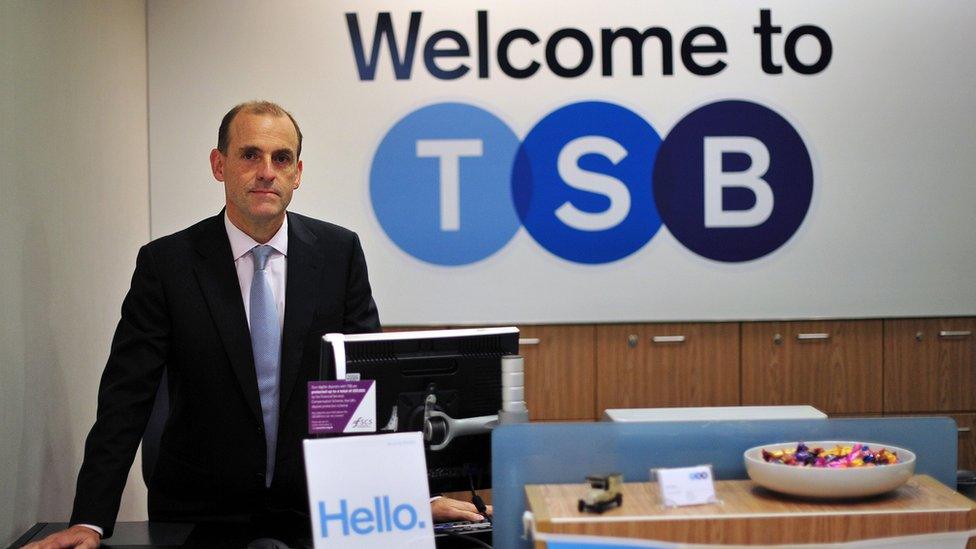TSB failed to test IT system properly, suggests IBM
- Published

MP's have already called on Paul Pester, the boss of TSB, to resign
TSB may not have carried out proper tests before transferring five million customers to a new IT system, a report suggests.
The software firm IBM was called in by TSB after its systems failed in April, causing thousands of customers to lose access to their accounts.
IBM's immediate response suggests TSB may have failed to understand the risks involved, or to carry out proper tests.
However TSB said the report was not a fair reflection of what happened.
IBM's report has now been published by MPs on the Treasury Committee.
IBM said the scale of TSB's project meant it was risky to carry out.
Because of that, it would have expected "world-class design rigour and test discipline".
However, it was unable to discover whether such testing had actually taken place.
"IBM has not seen evidence of the application of a rigorous set of go-live criteria to prove production readiness", the report said.
'Ill-prepared'
In response, TSB said the IBM report only represented an initial response to the problems.
"The IBM document contained a preliminary work plan with very early hypotheses based on observations to date, that were produced after only three days of engagement with TSB, almost eight weeks ago," a spokesperson said.
"The content is therefore now very much out of date."
"The hypotheses were not final, nor were they a validated view of what went wrong, or of the actions that have subsequently been taken."
However the consumer group Which? said that TSB had clearly been unprepared for the changes.
"This is further evidence to suggest that TSB was ill-prepared to undertake an IT migration, leaving customers facing a month of chaos and vulnerable to fraudsters."
"The bank has a long way to go to restore its customers' trust," said Gareth Shaw, Which? money expert.
Fraud
TSB's IT meltdown caused 1,300 customers to lose money from their accounts, as a result of fraud.
The report reveals that IBM advised TSB to reduce the use of anti-fraud software, in order to speed up financial transactions.
However, TSB said the advice was never followed, as it proved unnecessary.
MPs on the Treasury Committee have previously called on Paul Pester, the chief executive of TSB, to resign.
The Financial Conduct Authority has also launched an enquiry into what went wrong. It has the power to impose unlimited fines on the bank, which was previously part of the Lloyds Banking Group.
TSB said it was continuing to try and put things right for its customers. It has promised that no customer will be left out of pocket.